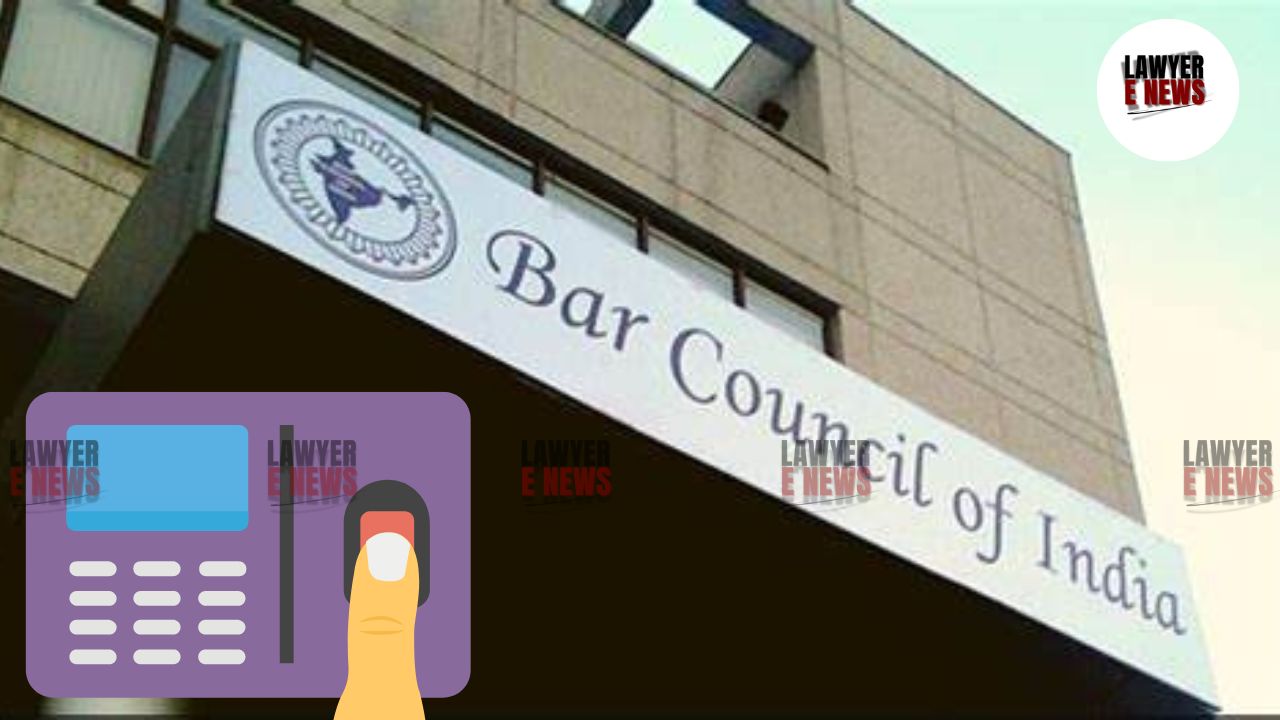-
by Admin
15 February 2026 5:35 AM



Failure to Disclose Criminal Background or Employment Will Lead to Withholding of Degrees” – Bar Council of India Issues New Guidelines for Law Students. Bar Council of India (BCI) issued a significant notification aimed at enhancing transparency, accountability, and ethical standards in legal education across the country. The notification mandates law students to submit declarations regarding their criminal background, employment status, and academic compliance. It further introduces biometric attendance systems and the installation of CCTV cameras in all law schools and Centers of Legal Education (CLEs). This directive follows judicial observations on the need for greater scrutiny of law students' backgrounds and behavior, ensuring that only those with clean records and ethical standing are allowed to enter the legal profession.
The legal profession demands the highest standards of integrity and ethics, and the BCI has been entrusted with regulating this through the Advocates Act, 1961. This latest move by the BCI comes in response to growing concerns about law students potentially entering the profession with undisclosed criminal backgrounds or engaging in simultaneous degree programs and employment that could compromise their legal education. The notification applies to all law students pursuing an LL.B. degree in India and places the onus on CLEs to ensure compliance.
Criminal Background Check: Law students must now declare any pending or past criminal cases before receiving their final marksheet and degree. If any student has been involved in a criminal case, whether convicted or acquitted, they must report it to their CLE, which in turn must notify the BCI. The BCI will decide on a case-by-case basis whether the student is fit to receive their law degree. Non-disclosure will result in disciplinary actions, including withholding of degrees.
"All such cases must be reported to the BCI, and institutions must await the BCI's decision before issuing the final marksheet and degree."
Simultaneous Degrees and Regular Academic Programs: In accordance with Chapter II, Rule 6 of the Rules of Legal Education (2008), law students are barred from pursuing any other simultaneous degree or regular academic program during their LL.B. studies, except for short-term or part-time certificate courses in areas like language or computer applications. CLEs are instructed not to issue final marksheets or degrees to any student found violating this rule.
Employment Status and Attendance Compliance: The notification reiterates the rule that law students must not be engaged in any employment during the course of their studies unless they have obtained a valid No Objection Certificate (NOC) from their employer. Law students must also prove their compliance with attendance norms as per Rule 12 of the BCI Rules of Legal Education. Institutions failing to enforce this will be subject to disciplinary action by the BCI.
"It is made clear that no one will be allowed to be enrolled in any State Bar Council if they fail to inform the BCI and obtain an NOC from their employer."
Biometric Attendance and CCTV Surveillance: CLEs are required to install biometric attendance systems to ensure accurate tracking of student attendance. In addition, CCTV cameras must be installed in classrooms and key areas within the institution. The recordings must be preserved for one year for potential use in investigations related to attendance or student conduct.
The BCI has made it clear that both students and CLEs will face strict penalties for non-compliance. Students who fail to disclose criminal backgrounds, employment status, or simultaneous academic pursuits will not receive their final marksheets or degrees. Similarly, institutions that fail to implement the BCI's directives could face de-recognition or disaffiliation.
This move by the BCI places significant responsibility on CLEs to monitor and report on the status of their students. It reflects the BCI's broader efforts to ensure that only qualified, ethical individuals enter the legal profession. The criminal background check system, in particular, addresses a growing concern about the character and suitability of individuals who will ultimately practice law in the country.
Moreover, the biometric attendance and CCTV surveillance requirements are aimed at increasing transparency within law schools, ensuring that students meet attendance norms and conduct themselves appropriately during their education.
The Bar Council of India's new directives are set to bring sweeping changes to how law students are monitored and assessed during their education. With stricter measures on criminal background checks, employment declarations, and attendance monitoring, the BCI aims to ensure that the future legal professionals of India meet the highest standards of ethics, accountability, and integrity. Both law students and educational institutions must now adapt to these changes to maintain compliance and uphold the reputation of the legal profession in India.
